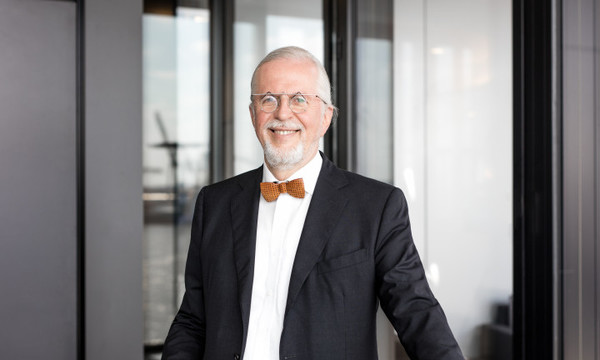For those not familiar with Comité Maritime International (CMI), can you explain its primary role?
CMI is non-governmental, not-for-profit international organisation established in Antwerp in 1897. The object of CMI is to contribute by all appropriate means and activities to the unification of maritime law in all its aspects. To this end, it shall promote the establishment of national associations of maritime law and shall co-operate with other international organisations. Members of the CMI are national Maritime Law Associations (NMLAs), the current membership consists of 52 MNLAs. Taking into account the members of those 52 NMLAs, CMI consists of a brain pool of about 12,000 experts in international maritime law. CMI operates though its Executive Council and most prominently through its President and two Vice-Presidents. For dedicated subjects, the Executive Council creates International Working Groups (IWG) and Standing Committees (SC). Currently, there are a total of 26 IWG and SC.
What is your role at CMI?
I am a Vice-President of CMI. I am also Co-Chair of a Sub-Committee on Unified Interpretation, a member of the IWG on the 1910 Collision Convention and a member of the SC on Marine Insurance and on General Average.
What is top of CMI’s current agenda?
In line with its objective to contribute to the unification of maritime law, CMI is deeply engaged in assisting other international organisations, foremost the International Maritime Organization (IMO) and the United Nations Commission on International Trade Law (UNCITRAL). CMI does this by drafting instruments and conventions, most successfully lately in the form of the International Convention on Judicial Sale of Ships (the Beijing Convention), most recently adopted by UNCITRAL, and by assisting IMO in its scoping exercise to identify which international maritime conventions need adapting to the new technology of maritime autonomous surface ships (MASS). CMI also looks into the need of amendments to existing conventions – current work includes a possible reform of the 1910 Collision Convention - and performs work in areas of high importance for the international maritime industry, such as a newly installed IWG on decarbonisation. CMI’s work does not stop when a convention is adopted. CMI will support the implementation and ratification of the convention. Examples include the IWG on Ratification of the Beijing Convention and the SC on the Ratification of Rotterdam Rules.
What impact has CMI had on international shipping in recent years?
CMI takes pride in being accepted as a valued non-governmental partner of governmental organisations such as the IMO and UNCITRAL. In this role, CMI has drafted new conventions and assisted in the work to determine necessary changes to existing conventions. The impact CMI has on international shipping is significant. Evidence for this is that no less than 27 other governmental and non-governmental organisations are Consultative Members to CMI, including IMO, the IOPC Funds, BIMCO, IUMI, ICS, IGP&I and many others. The relevance of CMI is also proven by the fact that ICS, IGP&I and IUMI actively participate in the work of CMI by appointing their representatives as members for SC and IWG.
Where would you like to see CMI in 10 year’s time?
I believe CMI’s relevance and contribution to the unification of international maritime law will continue to increase. The legal framework of shipping is getting more and more complex, and national states and international organisations will be interested and pleased to drawn on the huge expertise resting with CMI, its member associations and their individual members. With Ann Fenech being the recently elected first female President in CMI’s history of more than 125 years, I hope and trust that CMI can achieve full gender diversity.
Can you explain the relationship between CMI and IUMI?
Both associations cooperate closely. CMI is an Affiliate Member of IUMI, and IUMI a Consultative Member of CMI. IUMI can make its voice for the marine insurance industry heard at CMI and in this way participate in the unification of international maritime law. CMI appreciates the time and effort IUMI representatives make in furthering CMI’s work with their great expertise. Personally, I have been a member of IUMI’s Legal & Liability Committee for 12 years, and since 2019 I have been a Member of IUMI’s Salvage Forum as well.
On a personal level, how did your career take you to an involvement with CMI and why do you do it?
I was elected as President of the German Maritime Law Association in 2010 and represented the German MLA at CMI. In 2013, the CMI Member Associations elected me as a member of the Executive Council, and in 2018 as a Vice-President. Work for CMI is very time-consuming, but very rewarding. There are not too many non-governmental organisations which are as close as CMI to international law-making.
